The Pain Nurse - [7]
“Please go.”
“Maybe I was with Amy tonight. You don’t know. And she’s hardly a child. She’s twenty-two.” He looked around the familiar room.
“I need you to go now.”
“I hope you close those curtains after I leave. Those big windows. You should really be more careful.”
“Gary, you’re really…” She didn’t finish the sentence. She just held out her hands defensively and he slipped out the door. When she had locked it, she spoke to the door. “Gary, you’re really creeping me out tonight.”
Chapter Four
“You’re a hard man to find.”
Will Borders sat in the wheelchair, against the wall in a hallway behind a cart with red drawers, an EKG machine and menacing-looking defibrillator paddles, and there was Scaly Mueller walking toward him. Captain Steve Mueller was the commander of the Internal Investigations unit.
“But good men are hard to find.”
He talked that way, lapsing into motivational clichés. It was just another Scaly Mueller joke. All the cops made fun of him behind his back. Will said hello, but the unspoken answer to Mueller’s question was that Will’s only peace was anywhere but inside his room. After a week in the neuro-rehab unit, he had barely slept. Moving meant pain. Even raising his arm to dial his cell phone meant excruciating torture. Immobility meant pain to come. Once he was down for the night, he was strapped into what looked like vibrating socks-prevent blood clots, they said. They also killed his ability to sleep. But the biggest problem was three feet away from his bed.
His roommate was a quadriplegic from a car crash. He was trussed up in a contraption of wires and tubes. Every few minutes a nurse or technician would come in with a different, invariably noisy treatment. The commotion and stench made rest impossible. Hospitals were noisy places. When the poor man was conscious, he only wanted to watch back-to-back episodes of Judge Judy, with the volume on high. The room itself offered no view. The neuro-rehab unit was located in a first-floor addition that shot off the main part of the hospital. But Will’s window looked back into the old blond-brick building, across a small stretch of hibernating grass. The heliport was located on top of the neuro-rehab wing, and late at night medevac choppers would land, causing the windows to shake as if an earthquake were happening. The night-shift nurses joked darkly with him about the likelihood that one day a helicopter would crash on them. “The first thing you’ll see is the aviation fuel running down the walls, before it ignites and we’re all toast,” one said merrily.
At least he was off the morphine. It had masked the pain but it had brought dreams. Morphine took him to an old amusement park in Newport, Kentucky, right across the river from downtown. He had no memory of such a place ever existing-but it must have, the drug told him so. It was fenced off and deserted, but Will had walked through the gate. It was twilight, the sky on the verge of rain. He was alone, surrounded by rusting kiddie rides. All around was a quadrangle of old wooden buildings, their reddish paint flaking off. He walked inside one and saw straw on the ground, as if it had once been a stable. The morphine told him that children had been killed here, many children, murdered horribly. His dreaming self fought to find a way out, a way to wake up. The souls of the innocent dead followed him until he had crashed back into his broken body, staring at the harsh light over his bed. After that, he was happier to have the pain than the morphine dreams.
As he slowly got better, Will would dress in the bed and call a nurse first thing in the morning to transfer him from the bed into a wheelchair. The wheelchair was comfortable and moved easily. It had the brand name Quickie, which seemed like a sick joke. He might never be able to have a quickie again.
He stayed out as long as they would let him. With difficulty, he began to slide himself from the bed to the wheelchair, wheelchair to toilet and back. He needed a nurse there to help, of course. His right leg seemed unable to bear any weight, although he could move it easily. Will had quickly realized that he was one of the better-off patients. When the nurses weren’t taking care of what everyone called “the quads,” they were writing endless paperwork, as bad as cops, worse even. He called the nurses less often, did things for himself.
“You look good.”
Will knew it was a lie. Mueller started to clap him on the shoulder, then seemed to think better of it. His hand hung between them awkwardly. They awkwardly shook hands. Steve Mueller was around forty, wearing chinos, tie, and wool sport coat. He had a close-cropped halo of blond hair ringing his baldness and the look of a faded high school football player. He had a bristly peach-colored mustache. Growing up on the west side, he had played football for Elder, and had never been farther than Chicago. In other words, he had the resumé of nearly everyone who rose to command in the Cincinnati Police Department. It was one more reason Will would never move ahead. He was Scots-Irish Protestant in a German Catholic town.
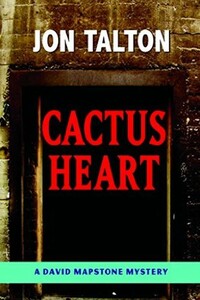
In this "prequel" to the popular David Mapstone mysteries, author Jon Talton takes us back to 1999, when everything dot-com was making money, the Y2K bug was the greatest danger facing the world, and the good times seemed as if they would never end.It was a time before David and Lindsey were together, before Mike Peralta was sherriff, and before David had rid himself of the sexy and mysterious Gretchen.In Phoenix, it's the sweet season and Christmas and the new millennium are only weeks away. But history professor David Mapstone, just hired by the Sheriff's Office, still finds trouble, chasing a robber into an abandoned warehouse and discovering a gruesome crime from six decades ago.Mapstone begins an investigation into a Depression-era kidnapping that transfixed Arizona and the nation: the disappearance of a cattle baron's grandsons, their bodies never found.
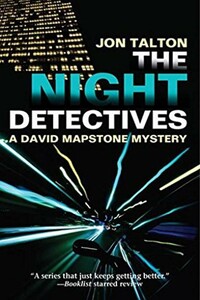
The private-detective business starts out badly for former Phoenix Deputy David Mapstone, who has teamed up with his old friend and boss, Sheriff Mike Peralta. Their first client is gunned down just after hiring them. The case: A suspicious death investigation involving a young Arizona woman who fell from a condo tower in San Diego. The police call Grace Hunter's death a suicide, but the client doesn't buy it. He's her brother. Or is he? After his murder, police find multiple driver's licenses and his real identity is a mystery.
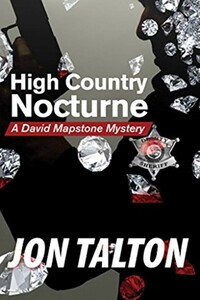
A cache of diamonds is stolen in Phoenix. The prime suspect is former Maricopa County Sheriff Mike Peralta, now a private investigator. Disappearing into Arizona's mountainous High Country, Peralta leaves his business partner and longtime friend David Mapstone with a stark choice. He can cooperate with the FBI, or strike out on his own to find Peralta and what really happened. Mapstone knows he can count on his wife Lindsey, one of the top "good hackers" in law enforcement. But what if they've both been betrayed? Mapstone is tested further when the new sheriff wants him back as a deputy, putting to use his historian's expertise to solve a very special cold case.
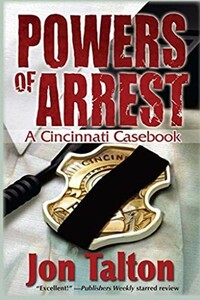
Cincinnati homicide Detective Will Borders now walks with a cane and lives alone with constant discomfort. He's lucky to be alive. He's lucky to have a job, as public information officer for the department. But when a star cop is brutally murdered, he's assigned to find her killer. The crime bears a chilling similarity to killings on the peaceful college campus nearby, where his friend Cheryl Beth Wilson is teaching nursing. The two young victims were her students. Most homicides are routine, the suspects readily apparent.
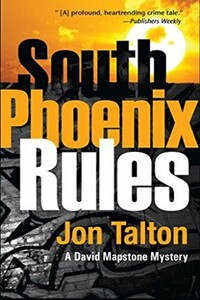
A handsome young New York professor comes to Phoenix to research his new book. But when he's brutally murdered, police connect him to one of the world's most deadly drug cartels. This shouldn't be a case for historian-turned-deputy David Mapstone – except the victim has been dating David's sister-in-law Robin and now she's a target, too. David's wife Lindsey is in Washington with an elite anti-cyber terror unit and she makes one demand of him: protect Robin.This won't be an easy job with the city police suspicious of Robin and trying to pressure her.

Два офицера «афганца», воспользовавшись выводом советских войск из Афганистана, переправили в Ташкент 20 килограммов «ханки»(опиум-сырца) и попытались его сбыть наркодилерам того времени….
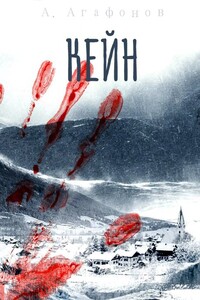
Чемодан с миллионом долларов, кучка головорезов, желающих его вернуть, и это в городишке, отрезанном от мира. Что может быть хуже? Ах, да….кровососущий монстр.От Автора:Данный рассказ является частью трилогии «Последний рубеж» и повествовал о молодости Кейн и его знакомству с Изабелл. Сюжет рассказа блуждал у меня в голове больше года, и дошел до кондиции, когда нужно перенести его на бумагу. Сама «трилогия Рубежа» будет представлена публике — когда меня устроит результат. Но, если сей рассказ будет достаточно популярен, и у читателей будет желание увидеть продолжение, то я вполне могу написать ещё одну-две истории повествующие о похождениях молодого Кейна, тем самым сформировав из них полноценный роман.Так что не стесняйтесь оставлять комментарии, тыкать носом в нелогичности.

Астра Фадеева – самостоятельная женщина, ведет собственный бизнес, в одиночку воспитывает сына, а еще помогает сестрам и бывшему мужу, хоть и не стоит он того. Но как же ей хочется быть слабой, беззащитной, опереться на сильное мужское плечо! Да только вот незадача – все ее романы обязательно заканчивались крупными неприятностями, причем не столько для самой Астры, сколько для окружающих. В общем, роковая женщина!Вот и на этот раз романтическая поездка к морю в солнечную Болгарию обещала жаркие объятия и страстные поцелуи, а обернулась очередной катастрофой.

«Посмотреть в послезавтра» – остросюжетный роман-триллер Надежды Молчадской, главная изюминка которого – атмосфера таинственности и нарастающая интрига.Девушка по имени Венера впадает в кому при загадочных обстоятельствах. Спецслужбы переправляют ее из закрытого городка Нигдельск в Москву в спецклинику, где известный ученый пытается понять, что явилось причиной ее состояния. Его исследования приводят к неожиданным результатам: он обнаруживает, что их связывает тайна из его прошлого.
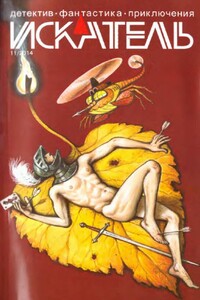
«ИСКАТЕЛЬ» — советский и российский литературный альманах. Издаётся с 1961 года. Публикует фантастические, приключенческие, детективные, военно-патриотические произведения, научно-популярные очерки и статьи. В 1961–1996 годах — литературное приложение к журналу «Вокруг света», с 1996 года — независимое издание.В 1961–1996 годах выходил шесть раз в год, в 1997–2002 годах — ежемесячно; с 2003 года выходит непериодически.Содержание:Анатолий Королев ПОЛИЦЕЙСКИЙ (повесть)Олег Быстров УКРАДИ МОЮ ЖИЗНЬ (окончание) (повесть)Владимир Лебедев ГОСТИ ИЗ НИОТКУДА.

В сборник «Последний идол» вошли произведения Александра Звягинцева разных лет и разных жанров. Они объединены общей темой исторической памяти и личной ответственности человека в схватке со злом, которое порой предстает в самых неожиданных обличиях. Публикуются рассказы из циклов о делах следователей Багринцева и Северина, прокуроров Ольгина и Шип — уже известных читателям по сборнику Звягинцева «Кто-то из вас должен умереть!» (2012). Впервые увидит свет пьеса «Последний идол», а также цикл очерков писателя о событиях вокруг значительных фигур общественной и политической жизни России XIX–XX веков — от Петра Столыпина до Солженицына, от Александра Керенского до Льва Шейнина.